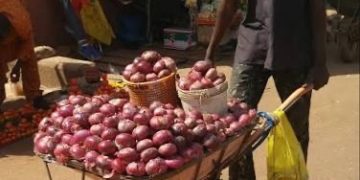In a country where instant payment and digital verification rule every transaction, a recent encounter on a bustling urban road is proving that old-school trust is still alive and well, thanks to the simple honesty of a Hausa wheelbarrow vendor.
The incident, which has gone viral across social media platforms with the phrase “Hausa life too simple,” is a rare moment of community integrity between two strangers. A commuter, identified only by their online handle ‘KHAN,’ pulled over to purchase a bag of fresh pepper from a vendor pushing his wares. When it came time to pay via mobile transfer (Opay), the commuter’s network failed repeatedly.
What happened next defied expectations. Instead of demanding cash or refusing the sale, the vendor, whom the buyer had never met, simply handed over his phone number which doubled as his Opay account and told the commuter to “just go and transfer it later.”
The buyer, stunned by the unquestioning faith, completed the transaction hours later once their network stabilized, sharing the story in awe.
“We don’t know each other, I was only driving and parked to buy it,” the commuter wrote. “He asked me to go, dropped his phone number… and said I can do it later. Hausa life too simple.”
The story has resonated deeply with Nigerians, sparking thousands of replies detailing similar experiences with vendors, particularly those of Northern extraction: from tailors returning mistaken change to market sellers relying on verbal agreements for credit.
Beneath the daily grind and the rush for digital convenience, an ancient value system rooted in communal honesty often influenced by strong cultural and religious teachings still underpins many Nigerian daily deals. In a fleeting roadside exchange over a handful of peppers, a simple vendor proved that some things are worth more than instant cash, mutual trust and an unshakeable belief in the goodness of a total stranger.
























